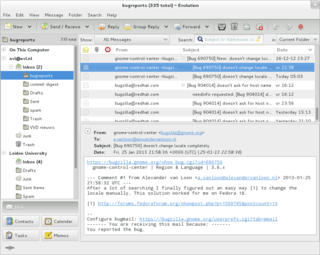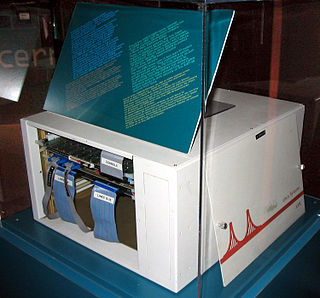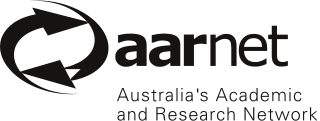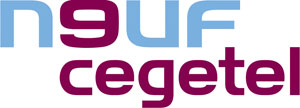Overview
A Virtual ISP (VISP) purchases services from another ISP (sometimes called a wholesale ISP or similar within this context) that allow the VISP's customers to access the Internet via one or more Points of Presence (PoPs) that are owned and operated by the wholesale ISP.
A point of presence (PoP) is an artificial demarcation point or interface point between communicating entities. A common example is an Internet point of presence, the local access point that allows users to connect to the Internet with their Internet service provider (ISP). A PoP typically houses servers, routers, network switches, multiplexers, and other network interface equipment, and is typically located in a data center. ISPs typically have multiple PoPs. PoPs are often located at Internet exchange points and colocation centres.
Virtual ISPs can vary from a normal ISP buying access points off a third party to a complete white label service where the branding of the VISP is usually such as to portray the image of being an ISP in their own right.
There are various models for the delivery of Virtual ISPs. As an example a wholesale ISP could provide network access to end users via its dial-up modem PoPs or DSLAMs installed in telephone exchanges, and route, switch, and/or tunnel the end-user traffic to the VISP's network, whereupon they may route the traffic toward its destination.

A modem is a hardware device that converts data between transmission media so that it can be transmitted from computer to computer. The goal is to produce a signal that can be transmitted easily and decoded to reproduce the original digital data. Modems can be used with any means of transmitting analog signals from light-emitting diodes to radio. A common type of modem is one that turns the digital data of a computer into modulated electrical signal for transmission over telephone lines and demodulated by another modem at the receiver side to recover the digital data.

A telephone exchange is a telecommunications system used in the public switched telephone network or in large enterprises. An exchange consists of electronic components and in older systems also human operators that interconnect (switch) telephone subscriber lines or virtual circuits of digital systems to establish telephone calls between subscribers.
In computer networks, a tunneling protocol is a communications protocol that allows for the movement of data from one network to another. It involves allowing private network communications to be sent across a public network through a process called encapsulation.
In another model, the wholesale ISP does not route any end-user traffic, and needs only provide AAA (Authentication, Authorization and Accounting) functions, as well as any value-add services, like email or web hosting.

Electronic mail is a method of exchanging messages ("mail") between people using electronic devices. Invented by Ray Tomlinson, email first entered limited use in the 1960s and by the mid-1970s had taken the form now recognized as email. Email operates across computer networks, which today is primarily the Internet. Some early email systems required the author and the recipient to both be online at the same time, in common with instant messaging. Today's email systems are based on a store-and-forward model. Email servers accept, forward, deliver, and store messages. Neither the users nor their computers are required to be online simultaneously; they need to connect only briefly, typically to a mail server or a webmail interface for as long as it takes to send or receive messages.
A complete VISP will consist of a pure rebranding of another ISP offering where the host ISP manages all aspects of the service. This model is commonly used for charities and other affinity organisations where 'MyOrganisation' ISP is actually a virtual service on another ISP.
Any given ISP may use their own PoPs to deliver one service, and use a VISP model to deliver another service, or, use a combination to deliver a service in different areas.
The service provided by a wholesale ISP in a VISP model is distinct from that of an upstream ISP, even though, in some cases, they may both be one and the same company. The former provides connectivity from the end-user's premises to the Internet or to the end-user's ISP, and the latter provides connectivity from the end user's ISP to all or parts of the rest of the Internet.
A VISP can also be a dial-up white label service offered to anyone at no cost or for a minimal setup fee. The actual ISP providing the service generates revenue from the calls and may also share a percentage of that revenue with the owner of the VISP. All technical aspects are dealt with, leaving the owner of VISP with the task of promoting the service. This sort of service is, however, declining due to the popularity of unmetered dial-up access.

A router is a networking device that forwards data packets between computer networks. Routers perform the traffic directing functions on the Internet. Data sent through the internet, such as a web page or email, is in the form of data packets. A packet is typically forwarded from one router to another router through the networks that constitute an internetwork until it reaches its destination node.

The Internet backbone may be defined by the principal data routes between large, strategically interconnected computer networks and core routers on the Internet.

An Internet service provider (ISP) is an organization that provides services for accessing, using, or participating in the Internet. Internet service providers may be organized in various forms, such as commercial, community-owned, non-profit, or otherwise privately owned.

A virtual private network (VPN) extends a private network across a public network, and enables users to send and receive data across shared or public networks as if their computing devices were directly connected to the private network. Applications running, on a computing device e.g. a laptop, desktop, smartphone, across a VPN may therefore benefit from the functionality, security, and management of the private network. Encryption is a common though not an inherent part of a VPN connection.

Internet access is the ability of individuals and organizations to connect to the Internet using computer terminals, computers, and other devices; and to access services such as email and the World Wide Web. Internet access is sold by Internet service providers (ISPs) delivering connectivity at a wide range of data transfer rates via various networking technologies. Many organizations, including a growing number of municipal entities, also provide cost-free wireless access.

AARNet provides Internet services to the Australian education and research communities and their research partners.

Telkom SA SOC Ltd. is a wireline and wireless telecommunications provider in South Africa, operating in more than 38 countries across the African continent. Telkom is a semi-privatised, 39% state-owned enterprise.

A content delivery network or content distribution network (CDN) is a geographically distributed network of proxy servers and their data centers. The goal is to provide high availability and high performance by distributing the service spatially relative to end-users. CDNs serve a large portion of the Internet content today, including web objects, downloadable objects, applications, live streaming media, on-demand streaming media, and social media sites.

Plusnet plc is a British quad play internet service provider (ISP); providing broadband, landline, IPTV and Mobile services. The company was founded in 1997 in Sheffield, South Yorkshire, and became a public limited company (plc) in July 2004 when it was floated on the Alternative Investment Market. On 30 January 2007, Plusnet was acquired by BT Group, but it continues to operate as a separate business. By December 2013, it had over 750,000 customers across the UK.

A broadband remote access server routes traffic to and from broadband remote access devices such as digital subscriber line access multiplexers (DSLAM) on an Internet service provider's (ISP) network. BRAS can also be referred to as a Broadband Network Gateway (BNG).

Be Unlimited was an Internet service provider in the United Kingdom between 2004 and 2014. Initially founded as an independent company by Boris Ivanovic and Dana Tobak in 2005, it was bought by Spanish group Telefónica Europe in 2006 before being sold on to BSkyB in March 2013 in an agreement which saw BSkyB buy the fixed telephone line and broadband business of Telefónica Europe which at the time traded under the O2 and BE brands. The deal saw BSkyB agree to pay £180 million initially, followed by a further £20 million after all customers had been transferred to Sky's existing business. The sale was subject to regulatory approval in April 2013, and was subsequently approved by the Office of Fair Trading on 16 May 2013.
TE Data S.A.E. is an Internet service provider in Egypt, established in 2001 by Telecom Egypt to act as its data communications and Internet arm.
TE Data has 65% of the market share and controls over 70% of the internet bandwidth in Egypt.
A neighborhood internet service provider (NISP) is a small scale broadband internet service provider targeted at a single subdivision or neighborhood. They are built in a neighborhood to provide internet access to residents in the community, often using rooftop antennas in a hub-and-spoke arrangement to bridge the last few hundred feet to the residences. Such a network requires a local network engineer to maintain network integrity and monitor the quality of service.
The Indonesia Internet Exchange (IIX) is the national interconnection point for Internet Service Providers in Indonesia. Launched in August 1997, the IIX is operated by the Indonesian Internet Service Providers Association (APJII).

Neuf Cegetel was a French wireline telecommunications service provider and a mobile virtual network operator (MVNO). It offered various telecommunications services to consumers, enterprises and wholesale customers, ranking second in the country in annual revenues. It was legally established in 2005 following the completion of the merger between Neuf Telecom and Cegetel. As of June 2008, the company became a wholly owned subsidiary of SFR, and the brand disappeared commercially.
Bit-stream access refers to the situation where a wireline incumbent installs a high-speed access link to the customer's premises and then makes this access link available to third parties, to enable them to provide high speed services to customers. This type of access does not entail any third-party access to the copper pair in the local loop.
Malta has been involved with the Internet since the latter's early days.
Like many developed and developing countries, the Internet in Bangladesh has witnessed significant growth. Although facing many constraints in expanding Internet access and use, development of the Internet and Information Technology are high government priorities. In December, 2017 Internet users in Bangladesh increased to 80.483 million.
On 19 February 2018, Bangladesh started the 4G network service.

A mobile broadband modem is a type of modem that allows a personal computer or a router to receive Internet access via a mobile broadband connection instead of using telephone or cable television lines. A mobile Internet user can connect using a wireless modem to a wireless Internet Service Provider (ISP) to get Internet access.
Net bias is the counter-principle to net neutrality, which indicates differentiation or discrimination of price and the quality of content or applications on the Internet by ISPs. Similar terms include data discrimination and network management.















